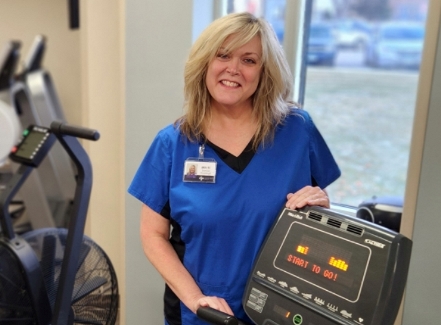Very Personable and Attentive to Each Patient
Virginia N., Benson, MN
I was very happy with the Cardiac Rehab program. Mitchi was very personable and attentive to each patient, no matter how many were there each time. She checked each patient in a very special way, watching what and how each of us was doing and progressing on needing extra attention. The program was very helpful in my recovery process and taught me diet and physical exercise. Very good program!


